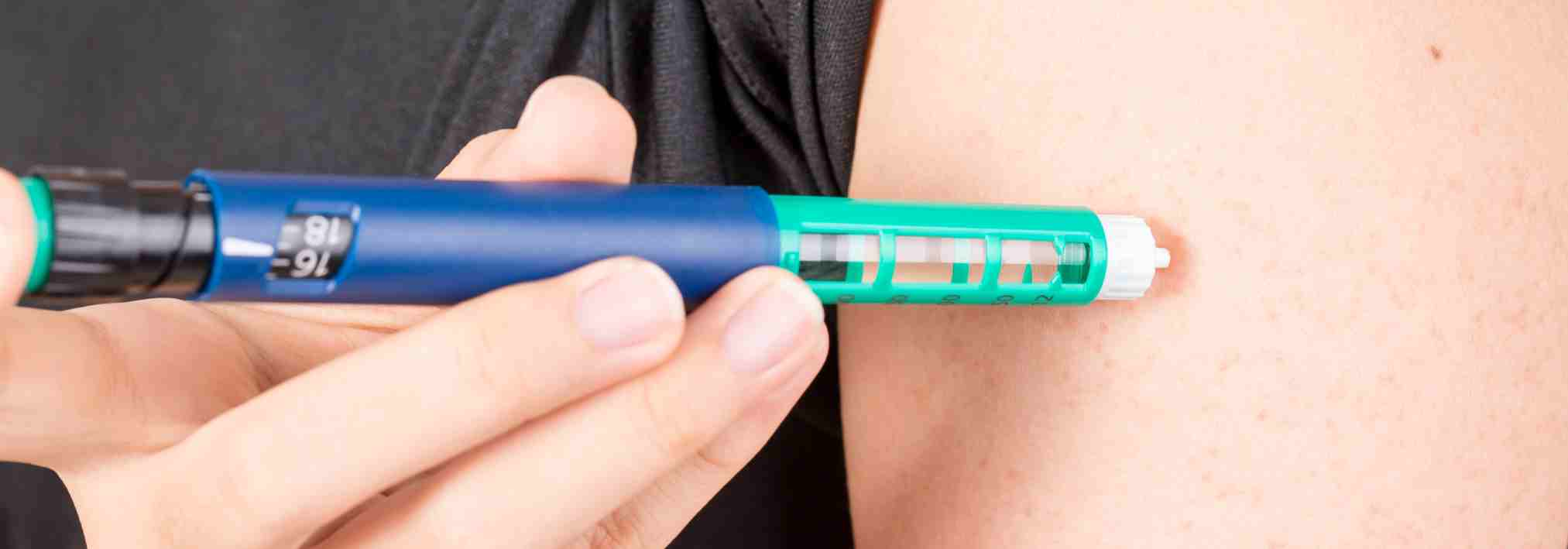Losing a Stone in a Month: What Works and What Doesn’t
At Junction Pharmacy, one of the most common questions we’re asked when it comes to weight loss is: can you lose a stone in a month? The short answer is yes—it’s possible. But the real question is whether it’s safe, sustainable, and suited to your body and lifestyle.
Losing a stone (roughly 6.3kg or 14lbs) in four weeks is a significant goal. For some, especially those with a higher starting weight or who are beginning a new weight loss medication, it may be achievable. But for others, this kind of rapid weight loss may be unrealistic or even unhealthy if approached in the wrong way.
In this guide, we’ll compare the most popular weight loss strategies, highlight what works (and what doesn’t), and explain how Junction Pharmacy can support you in reaching your goals safely and effectively. Contact us for advice or read on to understand rapid weight loss – and if it is safe!
Calorie Restriction: The Foundation of Fat Loss
At its core, weight loss occurs when you consume fewer calories than you burn. Creating a calorie deficit is the key principle behind any effective programme. Reducing your intake by 500–1,000 calories per day can lead to a weight loss of around 1–2lbs (0.5–1kg) per week. To lose a full stone in a month, a more aggressive approach is required—but this comes with risks.
Drastically slashing calories below 1,200 per day (for women) or 1,500 (for men) can lead to nutrient deficiencies, fatigue, and muscle loss. While some people may lose weight quickly using very low-calorie diets (VLCDs), these should only be undertaken under medical supervision.
What works: A moderate calorie deficit combined with whole foods, balanced macronutrients, and portion control.
What doesn’t: Starvation diets or cutting entire food groups without professional guidance.

Exercise: Essential, But Not a Shortcut
Exercise plays a crucial role in overall health and helps preserve muscle during weight loss. Cardio workouts such as walking, swimming, or cycling help burn calories, while strength training helps maintain lean body mass and boosts metabolism.
However, exercise alone without dietary changes often isn’t enough to lose a stone in a month. It’s much easier to cut 500 calories from your diet than it is to burn them off on the treadmill. That said, pairing exercise with a calorie deficit makes for a more effective and sustainable approach.
What works: Combining moderate-intensity exercise (5 days a week) with dietary changes.
What doesn’t: Relying on exercise alone while continuing high-calorie eating habits.
Intermittent Fasting: Worth Trying with Caution
Intermittent fasting (IF) has gained popularity as a weight management tool. The most common method, 16:8, involves fasting for 16 hours and eating within an 8-hour window. This can help some people reduce their total calorie intake without the need to track every bite.
While IF can be effective for fat loss and appetite control, it’s not a magic solution. What matters most is what and how much you eat during the eating window. Fasting while overeating high-calorie, low-nutrient foods won’t deliver results.
What works: Structured fasting paired with nutritious, portion-controlled meals.
What doesn’t: Using fasting as an excuse to binge or skipping essential nutrients.
GLP-1 Medications: A Powerful Medical Tool
Medications such as Wegovy (semaglutide) and Mounjaro (tirzepatide) belong to a class called GLP-1 receptor agonists. These injections work by regulating appetite, slowing digestion, and improving blood sugar levels. They’ve shown promising results, with some patients losing over a stone in the first 4–6 weeks, especially when combined with lifestyle changes.
These medications are typically prescribed for patients with a high BMI or weight-related health conditions. At Junction Pharmacy, we offer access to GLP-1 weight loss treatments, along with pharmacist-led support to monitor progress, manage side effects, and guide lifestyle changes.
What works: Medication paired with diet, movement, and consistent follow-up care.
What doesn’t: Relying on medication alone without making lifestyle adjustments.

Fad Diets and Quick Fixes: Avoid the Hype
From juice cleanses to keto extremes, fad diets often promise fast results but rarely deliver lasting change. They’re often unsustainable, socially restrictive, and can lead to yo-yo dieting or binge–restrict cycles. While you might lose weight quickly at first (often water weight), regaining it is almost inevitable once normal eating resumes.
What works: A personalised, gradual approach based on real food and behavioural changes.
What doesn’t: Any plan that feels like punishment or cuts out major food groups without reason.
How Junction Pharmacy Can Help
At Junction Pharmacy, we offer:
-
–> Weight loss consultations to assess your goals and medical history
-
–> Access to GLP-1 medications and other treatment options
-
–> Support with dietary planning and safe calorie reduction strategies
-
–> Ongoing reviews to monitor progress and adjust your plan
If you’re wondering can you lose a stone in a month, the answer isn’t cut and dry. While some may be able to lose a stone quickly, it is not always safe and efficient to do so.
Let’s do it safely. No crash diets, no gimmicks—just a realistic, medically-informed approach tailored to you.
Book a consultation or visit Junction Pharmacy today and take the first step towards safe, supported weight loss. Let’s work together to help you feel your best—this month and beyond.
This blog was written on behalf of Junction Pharmacy by Pharmacy Mentor.


